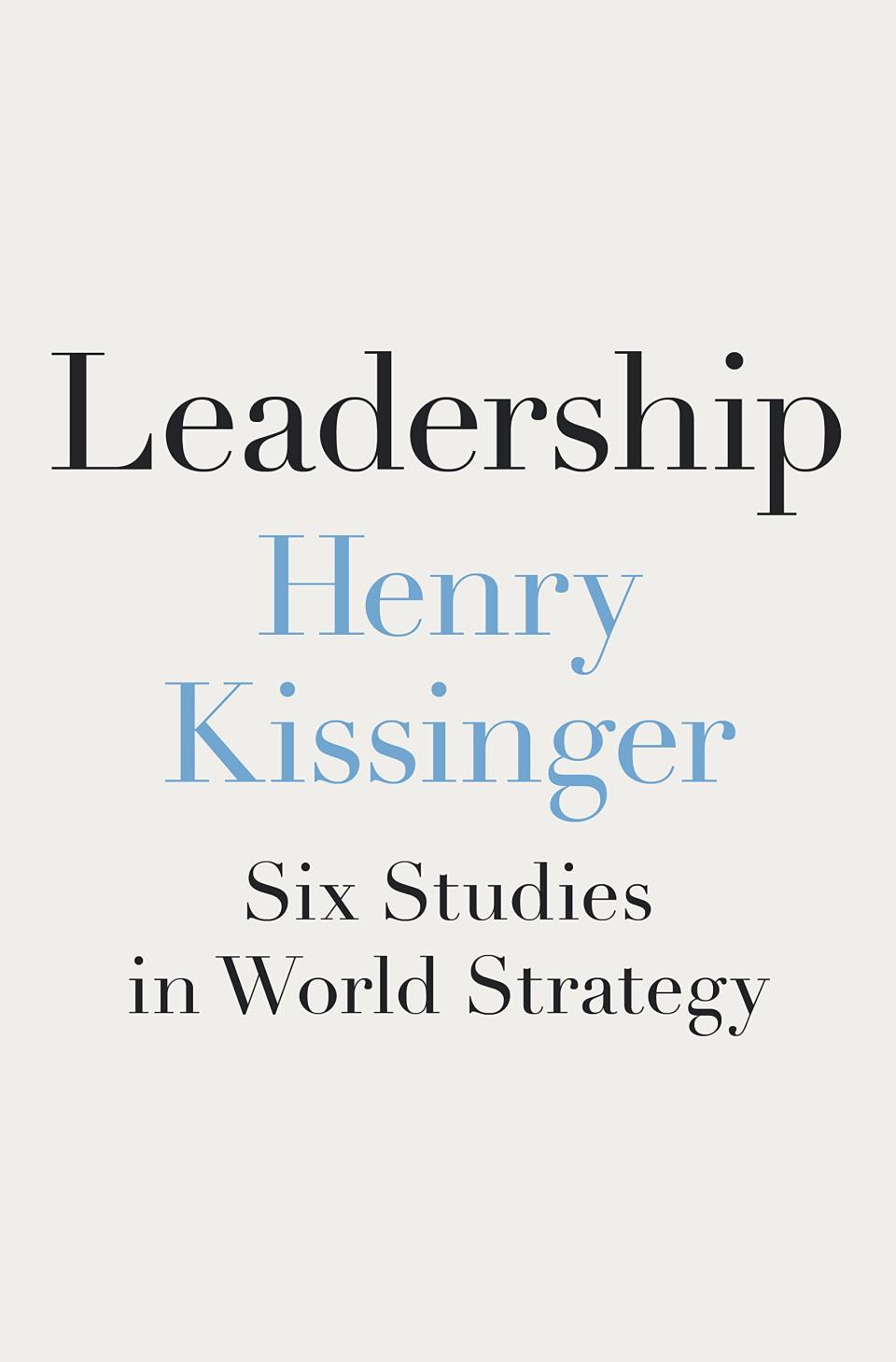Kissinger's quick takes: Which leader did he underestimate? How has Washington changed?
- Oops!Something went wrong.Please try again later.
- Oops!Something went wrong.Please try again later.
- Oops!Something went wrong.Please try again later.
- Oops!Something went wrong.Please try again later.
Former Secretary of State Henry Kissinger sat down with USA TODAY's Susan Page to talk about his new book profiling six "transcendent" world leaders and the lessons their experiences hold for policymakers today.
"Leadership: Six Studies in World Strategy," being published July 5 by Penguin Press, profiles leaders who helped reshape the world in the volatile period after World War II. They include Konrad Adenauer of West Germany, Charles de Gaulle of France, Richard Nixon of the U.S., Anwar Sadat of Egypt, Lee Kuan Yew of Singapore, and Margaret Thatcher of Great Britain.
During his tenure as Nixon's national security adviser and then his secretary of state, Kissinger had dealings with all of them.
Kissinger's new book on leaders: Exclusive: Kissinger sees 'painful' need for better leaders. Will they arrive in time?
Here are some quick takes from the interview.
On today's tumult compared with the late 1960s:
"In a way, it's a little bit worse than it was then. Because then, our critics were part of the same system ... . What is happening now is – the debate is about the worthiness of America, whether America and what kind of America is worth it to conduct policy. That makes dialogue even harder than it was then in terms of our internal debate."
On the imperative for new leaders:
"Of course, I worry that the leadership will not emerge, partly because the nature of information has so changed that the daily impact of events overrides reflection about its meaning. And to manage the daily flow of events, it's so time-consuming. But on the other hand, the way these issues did get handled, it's that somebody or some group emerges that believes there is some transcendent aspect and that the public then says, 'That's what we really wanted.' ... I count on the fact that some leadership will emerge to do this."

On how Washington has changed:
"When I think back to my period, even though there was tension, there was also a certain camaraderie between the top journalists and the top officials. And that's totally absent now... . When I was appointed security adviser (in 1969), Joe Alsop came up to interview me, but not to get information for his column. He wanted to check my suitability for the office, because he thought he was the permanent establishment... . Eventually, he found me acceptable and fairly quickly. And he had a dinner every Sunday night to which we invited media people and bipartisan senior people from. And that was something that's inconceivable today."

On the most 'astounding' leader he profiles:
"The most remarkable case, de Gaulle, arriving (when France fell to Germany in 1940) as the lowest-ranking general in the French army in London, in fact, having just been appointed general two weeks earlier, not speaking the language, not having any place whatsoever and becoming within three weeks, leader of the Free French. And (British Prime Minister Winston) Churchill saying to him, 'You are alone, and I'm alone. So we might as well work together.' But then he didn't speak of defeat. He spoke of transcending almost the century of decline for the French state and rebuilding France on that basis. Of all these leaders, I think it was the most astounding."
On the leader he underestimated:
"Sadat sent an emissary before the (1973 Yom Kippur) war. I had two meetings with him, one in a private house in Westchester County, and another one in Paris, or near Paris, while I was on a European trip. And in each case, I outlined our concept to him. And in each case, they rejected it – 'they' being Sadat. And I have to confess, I thought so little of Sadat that when the emissary at the end of his presentation said, 'If this meeting works well, the president will invite you to Cairo.' And I wrote a note to (my assistant) Peter Rodman, who was sitting next to me, 'Would it be impolite to ask him what the second prize is?'... .
"Sadat sent a message on the second day of the war that he wanted to negotiate after the war. And I'd sent him a message saying, 'During the war, please keep in mind that you are fighting it with Soviet arms, but you will have to make peace through American diplomacy.' So those were sort of the ground rules. But when I actually met him, it was two weeks later... . And he began the conversation by saying, 'I want peace. And I want a Kissinger plan.' And he said, 'Since you were not unavailable, I made a Kissinger plan.' And he went to a map and showed me....That willingness to go step-by-step, rather than seek an overall settlement, was a breakthrough."

On what these 6 leaders did:
"The challenge for each of them was by conventional standards potentially overwhelming ... . The challenge was not exactly the same, but it was a challenge to the basic purposes of the society. And after a period of disappointment and non-fulfillment, they had the strength to develop a concept for how to overcome it, but also to take their people with them."
On the Watergate scandal:
"I think it was a tragedy. It was a stupidity. I don't really think Nixon ordered it (the break-in), but he created the conditions out of which it grew. The Watergate itself was a petty transgression, but the obstruction of justice by the president, that cannot be. That was the reason why he fell."
This article originally appeared on USA TODAY: Kissinger on leadership: Quick takes on leaders, the dangers of today

